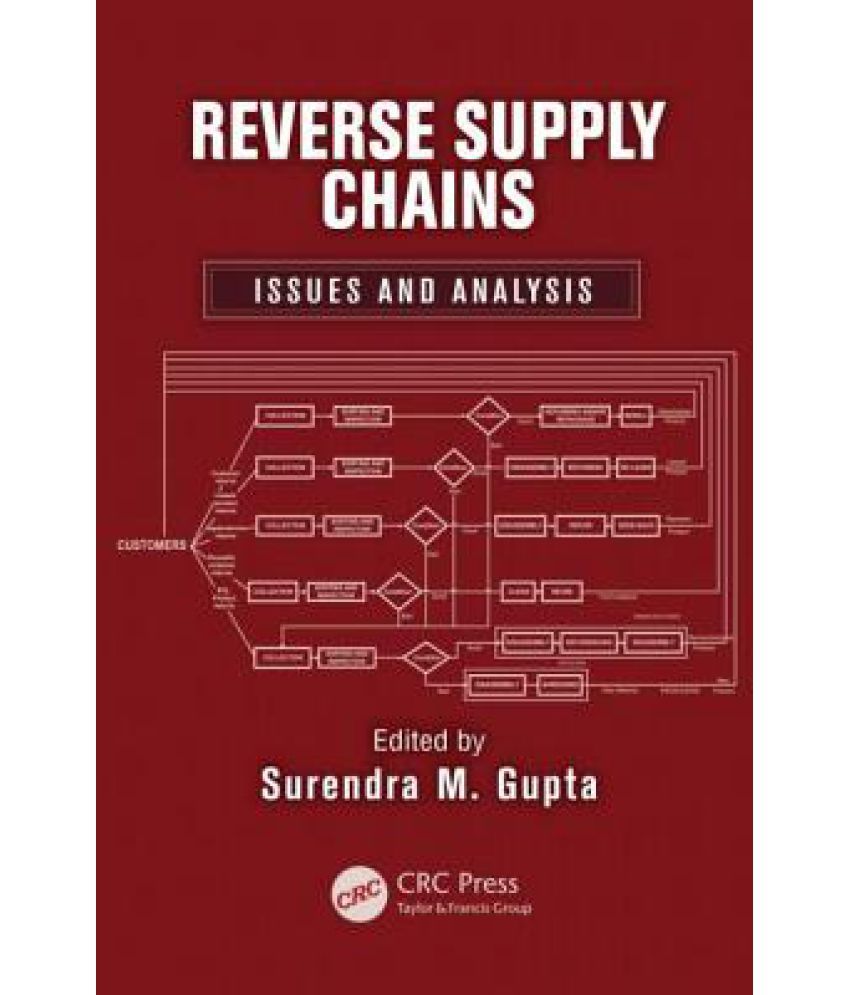Something went wrong. Please refresh the page and try again.
Something went wrong. Please refresh the page and try again.
Notifications can be turned off anytime from settings.
Item(s) Added To cart
Qty.
Something went wrong. Please refresh the page and try again.
Something went wrong. Please refresh the page and try again.
Exchange offer not applicable. New product price is lower than exchange product price
Please check the updated No Cost EMI details on the payment page
Exchange offer is not applicable with this product
Exchange Offer cannot be clubbed with Bajaj Finserv for this product
Product price & seller has been updated as per Bajaj Finserv EMI option
Please apply exchange offer again
Your item has been added to Shortlist.
View AllYour Item has been added to Shopping List
View AllSorry! Reverse Supply Chains is sold out.


You will be notified when this product will be in stock
| ||||||||||||||
Brief Description
"Reverse supply chains consist of a series of activities required to collect used products from consumers and reprocess them to either recover their leftover market values or dispose of them. It has become common for companies involved in a traditional (forward) supply chain (series of activities required to produce new products from virgin materials and distribute them to consumers) to also carry out collection and reprocessing of used products (reverse supply chain). Strict environmental regulations and diminishing raw material resources have intensified the importance of reverse supply chains at an increasing rate. In addition to being environment friendly, effective management of reverse supply chain operations leads to higher profitability by reducing transportation, inventory and warehousing costs. Moreover, reverse supply chain operations have a strong impact on the operations of forward supply chain such as the occupancy of the storage spaces and transportation capacity"--
Learn More about the Book
The introduction of reverse supply chains has created many challenges in network design, transportation, selection of used products, selection and evaluation of suppliers, performance measurement, marketing-related issues, end-of-life (EOL) alternative selection, remanufacturing, disassembly, and product acquisition management, to name a few. Under the guidance of an expert editor and with contributions from pioneers in the field, Reverse Supply Chains: Issues and Analysis addresses several important issues faced by strategic, tactical, and operation planners of reverse supply chains, using efficient models in a variety of decision-making situations providing easy-to-use mathematical and/or simulation modeling-based solution methodologies for a majority of the issues.
The book introduces the basic concepts of reverse logistics and systematically analyzes the literature by classifying more than 400 published references into five major types of product returns. It then identifies the basic activities and scope of reverse logistics, examining its drivers and barriers as well as major issues and challenges. The chapters cover metrics for quantitatively comparing competing new-product designs for end-of-life disassembly on a reverse production line, how to use the theory of constraints thinking processes to determine the core problems in reverse logistics, and an integrated multi-criteria decision-making methodology using Taguchi loss functions AHP (Analytic Hierarchy Process) and fuzzy programming. They explore issues associated with remanufacturing and green and resilient supply chain management and propose system modeling based on graph theory and network flows application to analyze material resource flows in the life cycle of a product.
Reverse supply chains is a new and fast growing area of research and only a handful of books are on the market, however those books discuss specific projects rather than provide a cohesive focus on the topics. This book will provide a foundation and understanding of the topic and also highlight how current issues can be approached in a decision-making situation-using the appropriate technique.
Review Quotes
1. addresses a very important issue, reverse supply chain management, which soon is expected become mandatory for various business due to environmental, regulatory and financial considerations. The timing of the book couldn't be more appropriate. will allow the readers to understand the reverse supply chains better as well as will aid in their decision making processes while trying to decide on the problem solving methodologies they should involve.
Elif Kongar, University of Bridgeport, Connecticut
" This is a timely issue which contains a fine and balanced selection of ethodologies and practical results in the field of the pacing "green manufacturing" industries. It is likely to be of use both for academia people and industry practitioners interested in gaining a competitive advance for their organizations.
" F.G. Filip, The Romanian Academy, Bucharest
This book gives a thorough view of a large number of important issues in Reverse Logistics, with detailed surveys, mathematical models, analyses, case studies, and numerical examples. It is self-contained for any academician or practitioner interested in Reverse Logistics, Environmentally Conscious Production, and Reverse/Closed-loop Supply Chain Management.
Kishore Kumar Pochampally, Southern New Hampshire University, Manchester
The images represent actual product though color of the image and product may slightly differ.
Register now to get updates on promotions and
coupons. Or Download App